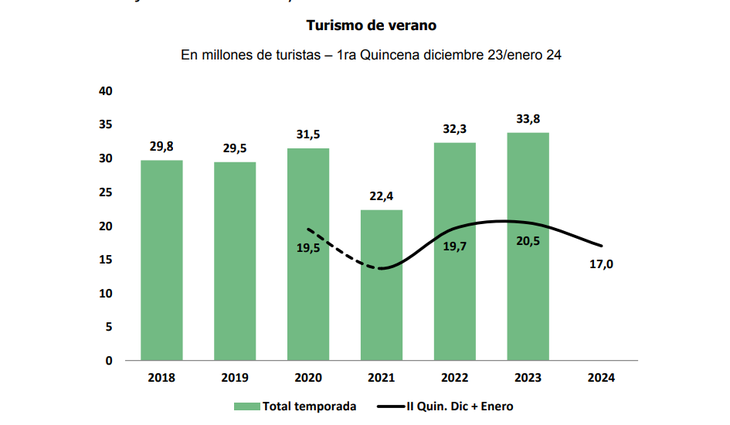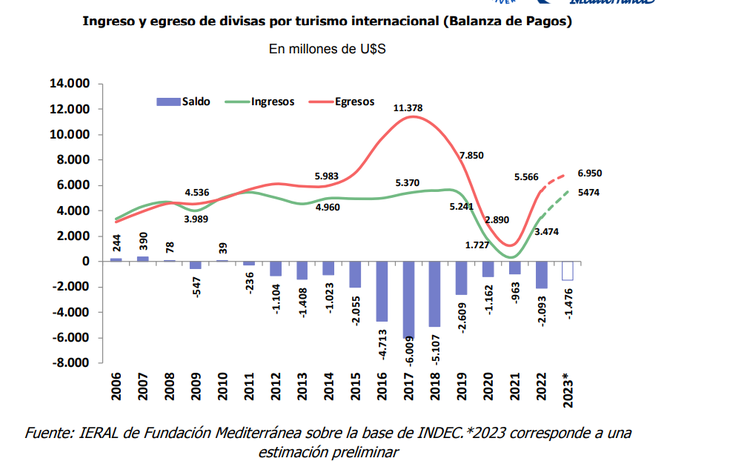Pending official data, a report revealed that the participation of international tourism improved its participation over domestic tourism.
He tourist movement The December-January two-month period was 13% lower than last year, the lowest level in the last 8 years, except for the summer of 2021, which was highly influenced by the pandemic, according to a study carried out by the Mediterranean Foundation.
The content you want to access is exclusive to subscribers.
The participation of international tourism smoothed the decline and in the November-December-January quarter the percentage of foreigners in tourist hotels averaged 38%, against 32% in the same quarter 12 months ago, and employment in all the different sectors linked to tourism is still 9% higher than pre-pandemic levels, with a higher incidence in provinces and localities closely linked to the tourist movement, but it could enter a risk zone, says a work by Marcos Cohen Arazi and Bautista Martina Baldiresearchers from the Ieral of the Mediterranean Foundation.


One of the most striking findings of the study is that despite the greater weight of the influx of foreign tourists and the lower departure and lower expenses of Argentine tourists abroad, 2023 would have closed (there are no definitive figures yet) with a sectoral foreign currency deficit close to US$1.5 billion.
tourism1.png

2023 would have closed with a sectoral foreign currency deficit close to US$1.5 billion.
Tourism and foreign exchange: 13 years in deficit
Even more notable is that it is the thirteenth consecutive year of foreign exchange deficit in the sector, which began in 2011 and accumulated since then and until 2023 a red in dollars of no less than US$29,958 million, despite the enormous potential assigned to Argentina as a tourist destination, low international purchasing power of a large part of the Argentine population to do “outbound tourism” and how relatively cheap the country could be for foreign tourism for many years, due to the weakness of the peso.
“The inflationary accelerationwith the consequent loss of purchasing power that it entails, added to the strong uncertainty about the future of the economy that dominated the last months of 2023 and the first months of 2024, are noted to explain the (until now) worst performance of summer tourism in the last 8 years, except for first summer in pandemic“says one of the conclusions of the study, although – he warns – “The month of February can help improve the record.”
tourism2.png

For the Mediterranean Foundation, February could improve the record of foreign currency income.
In respect ofl international tourism, Cohen Arazi and Baldi maintain that gains participation in domestic tourismto the point that in 2023 the generation of foreign exchange from incoming tourism would have reached a level close to US$5.5 billion, between the maximums of the last decade (this is a preliminary estimate). Meanwhile, outbound tourism grew much less than tourism and the combination of both developments limited the sectoral foreign exchange deficit, which in some years had been around US$6,000 million.
Source: Ambito




